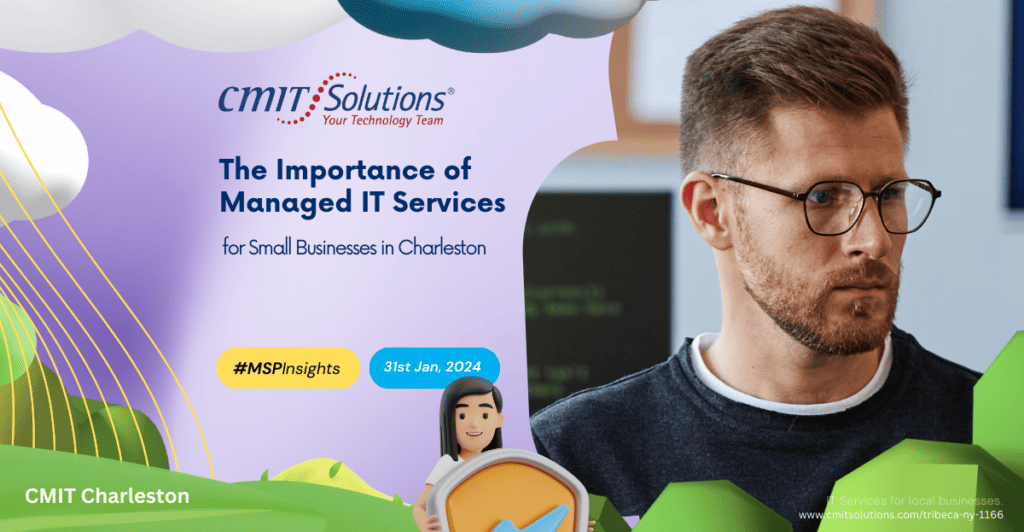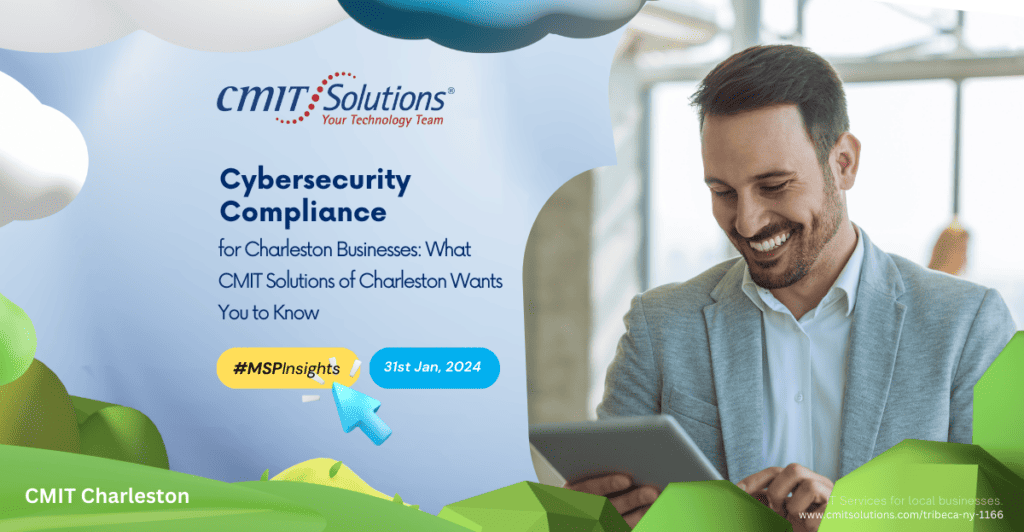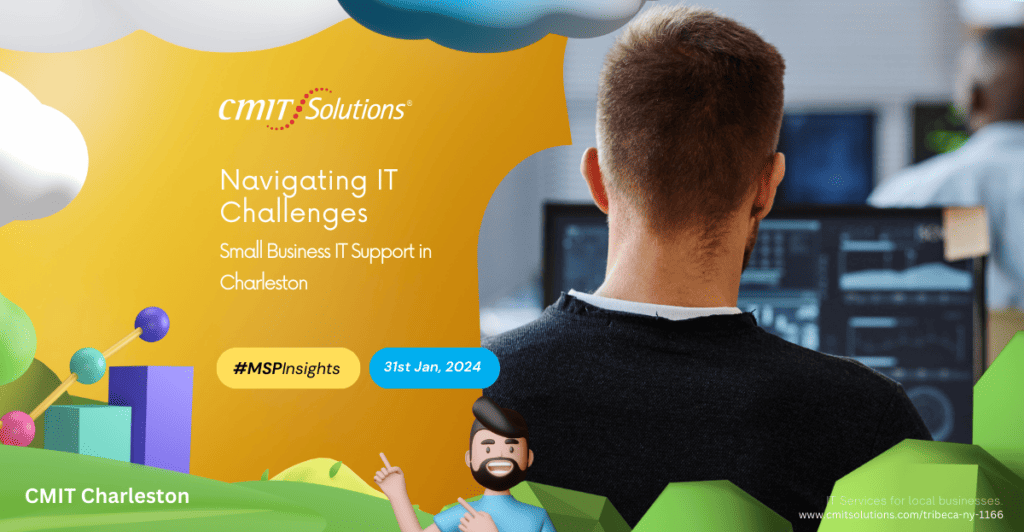Cloud computing has revolutionized business operations, providing scalable and cost-effective solutions for companies of all sizes. However, with the growing adoption of cloud technology comes a rising tide of security risks. From data breaches to account hijacking, these threats pose significant challenges to organizations in 2025. In this blog, we’ll explore the top cloud security risks of the year and outline strategies to mitigate them effectively. By leveraging managed IT services like those offered by CMIT Solutions of Charleston, businesses can fortify their cloud environments against evolving threats.
Top Cloud Security Risks in 2025
1. Data Breaches
Data breaches remain a top concern for businesses in the cloud. Sensitive information such as financial data, personal identification, and confidential business details can be compromised through vulnerabilities or human error. High-profile breaches in recent years highlight the devastating impact on reputation and finances.
Mitigation Strategies:
- Implement robust encryption protocols for data at rest and in transit.
- Regularly assess systems for vulnerabilities using comprehensive IT services.
- Educate employees on cybersecurity best practices through training programs like those provided by CMIT Charleston.
2. Malware and Ransomware Attacks
Malware and ransomware attacks continue to evolve, targeting cloud environments with greater sophistication. These attacks can encrypt data, disrupt operations, and demand ransom payments, leaving businesses in a precarious position.
Mitigation Strategies:
- Utilize advanced endpoint protection and antivirus solutions.
- Regularly back up data using secure data backup and recovery solutions.
- Partner with managed IT providers for proactive threat detection, such as CMIT’s threat monitoring services.
3. Account Hijacking
Account hijacking occurs when attackers gain unauthorized access to cloud accounts through stolen credentials. This can lead to data theft, financial losses, and operational disruptions.
Mitigation Strategies:
- Implement multi-factor authentication (MFA) across all accounts as detailed in CMIT’s guide to MFA.
- Monitor for unusual login activity using network monitoring solutions.
- Enforce strong password policies and utilize secure password management tools.
4. Misuse of Cloud Services
The misuse of cloud resources by employees or contractors can introduce vulnerabilities and expose sensitive data. Unauthorized activities, such as using unsecured applications, can undermine security measures.
Mitigation Strategies:
- Establish clear usage policies and provide regular training to employees.
- Monitor cloud resource usage with tools like those highlighted in CMIT’s cloud security practices.
- Use role-based access control to limit unnecessary permissions.
5. Lack of Encryption
Failing to encrypt sensitive data stored in the cloud leaves it vulnerable to unauthorized access and data corruption. Encryption is essential for protecting both data integrity and confidentiality.
Mitigation Strategies:
- Ensure all data stored in the cloud is encrypted at rest and in transit.
- Implement customer-managed encryption keys using tools like those detailed in CMIT’s IT solutions.
- Regularly audit encryption practices to ensure compliance with industry standards.
6. Insider Threats
Insider threats, whether intentional or accidental, can pose significant risks to cloud environments. Employees with extensive access to sensitive data or cloud services may inadvertently or maliciously compromise security.
Mitigation Strategies:
- Implement strict role-based access controls and limit permissions.
- Conduct regular employee training on security protocols, as outlined in cybersecurity training programs.
- Monitor user activity through advanced logging and alert systems to detect unusual behavior.
How CMIT Solutions of Charleston Mitigates Cloud Security Risks
As a trusted IT partner, CMIT Solutions of Charleston provides a comprehensive suite of services to help businesses combat cloud security challenges. From endpoint protection to multi-factor authentication, their offerings are tailored to meet the unique needs of Charleston-based businesses.
Data Breach Prevention
CMIT employs cutting-edge security tools to prevent data breaches. Services include advanced monitoring, encryption, and vulnerability assessments, as highlighted in their blog on preventing data breaches.
Proactive Threat Detection
With 24/7 threat monitoring and incident response, CMIT ensures that malware and ransomware threats are identified and neutralized before they cause harm. Learn more about their proactive approach in this blog.
Employee Training Programs
Human error is often a weak link in cloud security. CMIT offers cybersecurity training programs to empower employees, ensuring they can identify and respond to threats effectively. Discover more in cybersecurity training programs for employees.
Network Security Enhancements
From firewalls to intrusion detection systems, CMIT’s managed IT services enhance network security, providing robust protection against account hijacking and misuse of cloud services. Details can be found in their blog on network security.
Encryption Solutions
CMIT ensures data is encrypted both at rest and in transit, utilizing the latest technologies to safeguard sensitive information. Learn how their services address encryption needs in this guide.
Custom Cloud Strategies
CMIT specializes in crafting tailored cloud strategies for Charleston businesses. This includes migration planning, compliance adherence, and integrating advanced tools to meet specific operational needs. Explore their expertise in effective cloud migration strategies.
Future Trends in Cloud Security
As cloud technology continues to evolve, so do the security challenges. Staying ahead requires constant vigilance and adaptation to emerging trends.
Artificial Intelligence in Threat Detection
AI-powered tools are transforming threat detection, providing real-time analysis and automated responses to potential risks. CMIT explores this in their blog on AI-driven IT solutions.
Zero-Trust Architectures
Zero-trust security models are becoming the gold standard for cloud environments. These models assume that threats can arise both inside and outside the network, enforcing strict verification for every access request.
Enhanced Compliance Requirements
With increasing regulations around data protection, businesses must ensure compliance with standards like GDPR and HIPAA. CMIT provides guidance on navigating these complexities in their compliance-focused blogs.
Advanced Encryption Techniques
Innovative encryption technologies, such as homomorphic encryption and quantum-safe algorithms, are emerging to address the rising complexity of cyber threats. Businesses must adapt to these advancements to stay secure in the future.
Conclusion
Cloud security challenges are a growing concern for businesses in 2025, but with the right strategies and partnerships, they can be effectively mitigated. By implementing robust security measures, providing employee training, and leveraging the expertise of managed IT services like those offered by CMIT Solutions of Charleston, organizations can safeguard their cloud environments against evolving threats.
Ready to strengthen your cloud security? Contact CMIT Solutions of Charleston today and ensure your business is prepared to face the challenges of tomorrow.





